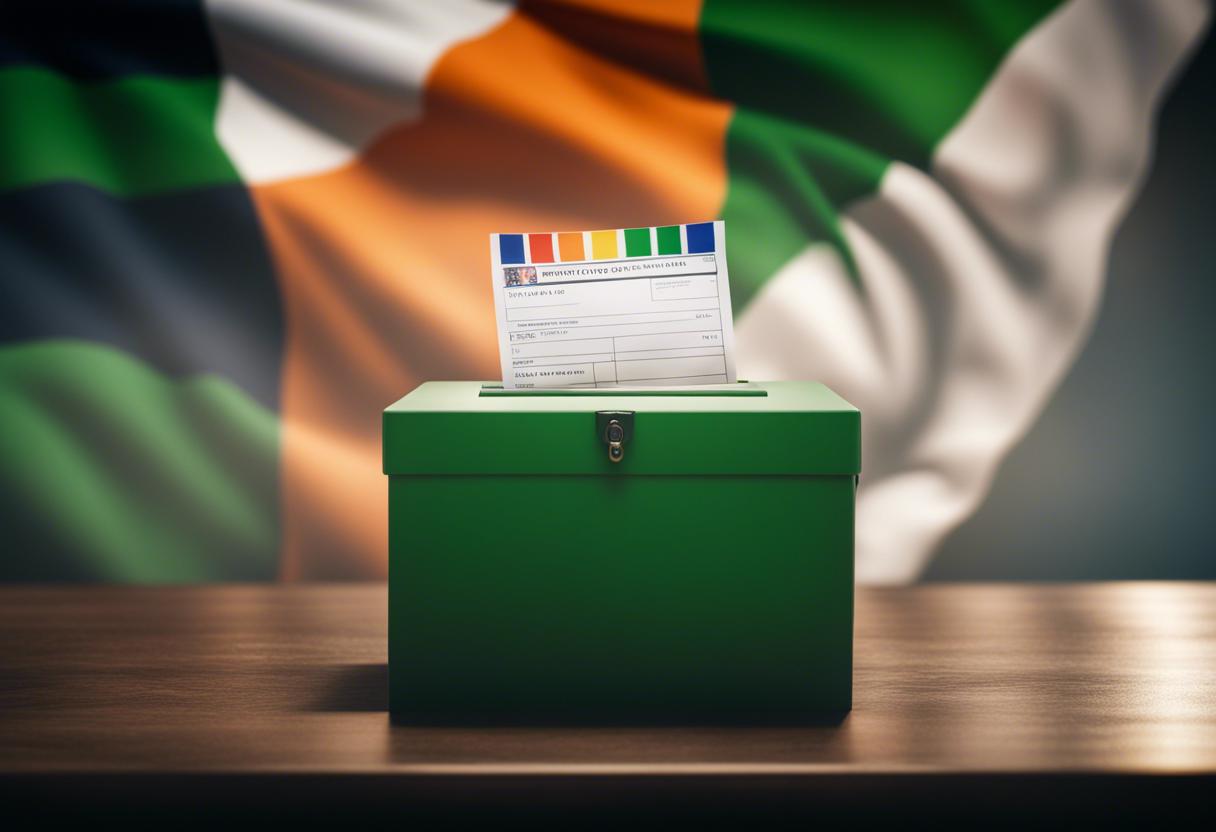Gentlemen, throughout my legal battle over the Seanad franchise legislation held at the Supreme Court in October 2022 and later in July 2023, a recurring notion proposed by the Attorney General and his team, that the TDs cannot be compelled by the Government to favour specific Seanad electoral reform legislation, was consistently emphasised.
Despite this claim, a year and a half after the Supreme Court proclaimed the Government-backed system unconstitutional, it is being indicated now that there’s an intention to pass a law broadening the scope of Seanad electoral participation to more university degree-holders (as highlighted in “Exclusive Seanad voting privileges for TCD and NUI graduates set to be abandoned”, News, 10th September).
When considering a bill in the Dáil that would persistently deprive the bulk of the Irish populace of their vote while allocating the parliamentary electoral power solely to university graduates, councillors, TDs, and senators, a great deal of deliberation is necessary. In an imminent general election, TDs may wish to reconsider arguing to their electorate that a degree is a prerequisite for voting, particularly those not holding university qualifications.
An alternative route could be to grant Seanad electoral voting mandate to every citizen irrespective of academic credentials. This was supported by the 2013 Seanad referendum, the government-backed 2015 Manning report, and the all-party legislative 2018 Seanad Reform Implementation Group. Even Micheál Martin, the Tánaiste, recommended this in the Dáil in 2014.
A shrewd TD would be more inclined to endorse a broadening of Seanad voting rights to all over the limited reforms that the Government intends to bring forward.
As for the Supreme Court judgement on the seventh amendment – it is refreshing to see an end to the Government’s prolonged avoidance and hindrance of Seanad restructuring. Yet, the disinterested and minimal commitment on the part of the Government remains apparent.
Best Regards,
Tomás Heneghan,
East Wall,
Dublin 3.
The proposal submitted to the Cabinet is incomplete and insufficient, demonstrating a modest approach that falls significantly short of the ethos of the referendums of 1979 and 2013, wherein the public clearly signalled a mandate for a more accessible, democratic Seanad. Critically, the proposal does not provide for universal suffrage. It merely extends the number of eligible graduate voters for the six university board seats but neglects to provide the broader public with voting rights for the 43 panel seats.
The kind of in-depth reform we require is outlined in the Seanad Bill 2020, which was penned by me, Senator Michael McDowell, and other members of the cross-party Seanad Reform Implementation Group. Our Seanad Bill 2020 prescribes a forward-looking approach to Seanad reform, endowing every adult citizen with voting rights in elections for the Seanad, and in doing so, fully consonant with the provisions of last year’s Supreme Court ruling.
The discussions and resolutions in the Seanad have broad impacts, and therefore, all individuals should have a voice in electing its representatives. Senator ALICE-MARY HIGGINS, National University of Ireland Panel, Seanad Éireann, Leinster House, Dublin 2.
The latest idea to disband the Trinity and NUI boards in the Seanad and substitute them with a single graduate panel reflects all that is flawed with a typically Irish remedy for an Irish predicament. Even if this suggestion is put into effect, there will remain individuals with multiple entitlements to vote in all Seanad elections.
The Seanad will only become an effective institution when each citizen is granted one vote, which they can exercise on the same day as the general election for Dáil Éireann. Until this transpires, the Seanad, will continue to serve primarily as a serene retreat for retired politicians or a restorative refuge for those politicians seeking to regain their strengths for future battles. LOUIS O’FLAHERTY, Santry, Dublin 9.
Unless the Seanad suffrage is extended to every citizen, regardless of their educational attainment, it will continue to be a striking contradiction to the republican values that this state is claimed to be built upon.
Ciarán McMahon from Stackallen, Co Meath, jokingly notes in response to the recent Seanad reforms that the British Parliament’s alterations to the House of Lords in 1999, though ridiculed by British comedian Jay Foreman as moving “kicking and screaming into the 19th century”, suddenly seems ahead of Ireland’s parliamentary developments. The Irish Seanad changes were originated in 1979; it’s only after 45 years that legislators seem to be adapting to 20th-century thinking. McMahon humorously envisages the Irish Parliament reaching the 21st century by 2069.
Meanwhile, Brían Ó Súilleabháin of Dublin 8 spotlights an error. The heading of your publication suggests the Seanad voting rights for TCD and NUI graduates is under threat, yet, according to Article 17 of the Constitution, the limitation on the Seanad franchise is for NUI and the University of Dublin Graduates, not specifically “TCD”. This distinction is not negligible.
The blueprint for amending the Seanad universities constituencies has existed since July 1979 with the approval of the seventh amendment to the Constitution. Unfortunately, the Oireachtas had been negligent in executing this until mandated by a recent Supreme Court judgement. The proposed legislation seeks to rectify one major injustice but should steer clear of replacing it with another—anomalies such as an Irish citizen with degrees from both currently recognised institutions having the ability to cast votes in the two Seanad university constituencies. This is often complicated by name changes, typically due to marriage, among degree holders from different institutions. The proposition of one graduate/one vote in the new higher education constituency would require an exhaustive graduate electoral register to tackle these complexities, as pointed out by Eunan O’Halpin, MRIA, FTCD, Professor Emeritus of Contemporary Irish History at the Trinity Centre for Contemporary Irish History, Trinity College, Dublin 2.

